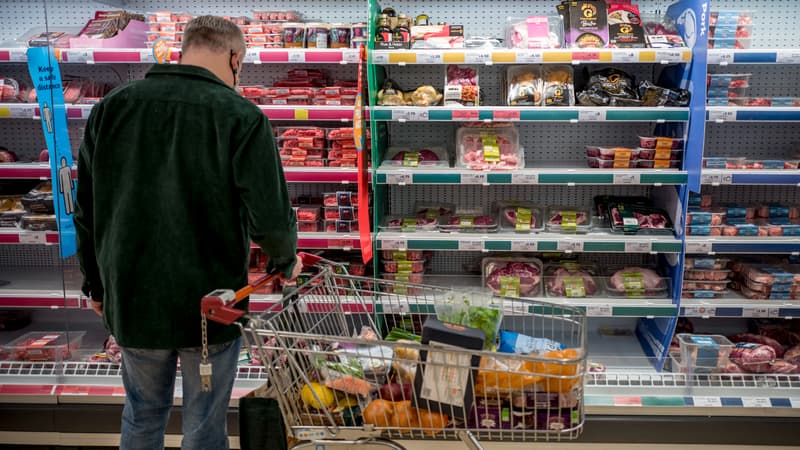Every year, supermarkets negotiate with their industrial suppliers the new conditions under which they will buy their products. The 2023 negotiations, completed on March 1, resulted in an average increase of around 10% in the prices supermarkets pay manufacturers. At that time, all the indicators were up. Except that since March, the costs of many agricultural commodities, wheat for example, and energy have tended to stabilize or even fall.
This time lag thus creates “an unexpected effect for manufacturers”, according to an industry expert. In fact, for the most part, they have seen their purchase prices rise faster than their production costs. Result, all posted excellent numbers for the first quarter. Procter & Gamble, for example, tops $20 billion in sales for the first time; Danone’s turnover is better than expected by analysts; PepsiCo posted a record profit from the price hike… Clearly, they are in no hurry to get back to the negotiating table.
Among distributors, a billing is misleading
On the distributor side, here too, inflation boosted business volume and preserved margins. But it is the tree that hides the forest because the volumes themselves are experiencing a real decline, unheard of for several decades. The French shop with a calculator in hand and behaviors are changing: fewer national brands, more private label on shopping carts, organic products are no longer popular and meat has become a luxury product.
The dealers know this, the return to reality will be all the more difficult when it will be necessary to restart the purchase machine. It is the turn of the industrialists, they say, to put their hands in their pockets a little. They also ask that the regulatory framework that governs negotiations be made somewhat more flexible.
“We have to go in reverse”
The government expects prices to come down well next September. The delegated Minister of Commerce, Olivia Grégoire, said that she expected “a visible fall in food prices” at the beginning of the school year, thanks to the ongoing negotiations between distributors and agri-food manufacturers and due to the fall in the prices of certain materials raw materials
Same story on the side of the Federation of Commerce and Distribution. “We have to make sure we go in reverse,” says Jacques Creyssel, its general delegate.
Case-by-case renegotiations
The problem is somewhat a whim of the manufacturers. Nothing legally obliges them to renegotiate the contracts signed for the year. Contract renegotiation clauses are often too vague to be automatic and effective. Hence the pressure from the government to put everyone back at the table.
Despite everything, manufacturers are keen to cooperate. First, because little by little they are losing market share in favor of private label. So it’s a question of credibility.
The confrontation has only just begun. In a letter addressed to the Minister of Commerce, Ilec, who represents the big brands, assures that manufacturers will play the game, it is a matter of common sense. But it will be case by case, we should not expect a second wave of massive renegotiations.
Source: BFM TV


